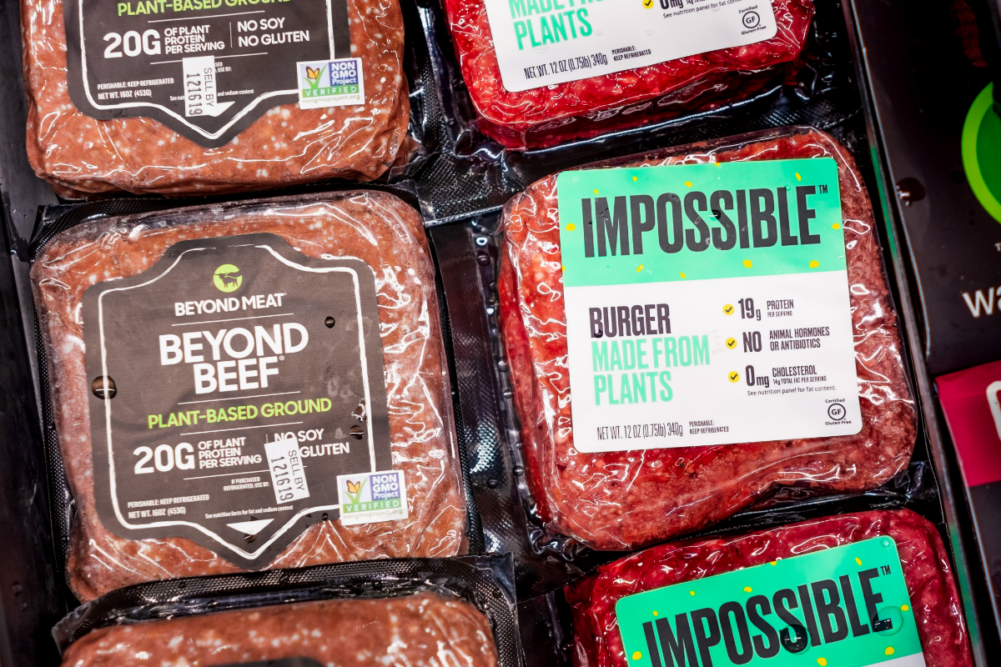 KANSAS CITY — A deceleration in the sales of plant-based meat alternatives is an issue of concern for manufacturers attempting to gain a foothold or market share in the nascent category. Yet at the same time investor interest remains high as venture capitalists continue to put money behind both large and small meat alternative ventures.
KANSAS CITY — A deceleration in the sales of plant-based meat alternatives is an issue of concern for manufacturers attempting to gain a foothold or market share in the nascent category. Yet at the same time investor interest remains high as venture capitalists continue to put money behind both large and small meat alternative ventures.
The slowing sales were a topic of discussion during recent earnings calls for Maple Leaf Foods and Beyond Meat. Michael H. McCain, president and chief executive officer of Maple Leaf Foods, the owner of meat alternative brands Field Roast and Lightlife, commented on the issue during a Nov. 4 conference call with securities analysts. He called the situation “concerning” and said category performance had “basically flatlined.”
At Beyond Meat, US revenues fell 14% in the third quarter ended Oct. 2, and global sales were lower than in the second quarter. Ethan Brown, president and CEO of Beyond Meat, cited several reasons for the setback in a Nov. 10 earnings call. He said consumers were making fewer trips to grocery stores, were less open to trialing new products and expressed less interest in healthy options. He added that labor shortages at retailers may have impacted demand, because of delays in shelf resets.
In an interview with Food Business News, Chris DuBois, senior vice president of IRI’s protein practice, pointed to three more fundamental issues that may be affecting category performance. He said the fall in sales may be attributed to products that don’t meet the consumer’s perception of clean, companies in the category not proving their products are more sustainable than conventional meat products, and competition.
“We’re going to find out which brands have built the right to be in the case,” Mr. DuBois said. “The market is sizable with $1.4 billion in sales in the US between fresh and frozen, but there are a lot of brands. Some brands will live beyond this, but not all of them are going to live.”
Investors remain willing to provide the capital needed to be competitive in the category. Impossible Foods, for example, raised approximately $500 million in its most recent funding round, bringing the company’s total funding since it was founded to nearly $2 billion.
In a smaller investment, Sundial Foods recently raised $4 million in seed funding to further develop its chicken wing alternative concept that features plant-based meat, skin and bone. The product’s ingredient list also is in alignment with the clean label trend as it only includes eight ingredients, including water, chickpeas and sunflower oil.
Still, investors have not entirely ignored the shifting trends. Since announcing its financial results Nov. 10, Beyond Meat’s shares have dropped 24% to a recent price around $70. As recently as January, the shares were trading as high as $221.
Rarely does the path from niche category to mainstream market follow a straight line, and the market for meat alternatives may be at an inflection point. Consumers may be moving beyond the surprise that certain plant-based alternatives have nearly the same taste and texture as animal-based meats. Now they expect more. Meeting those expectations will be central to the category’s next phase of growth.





